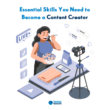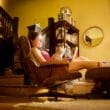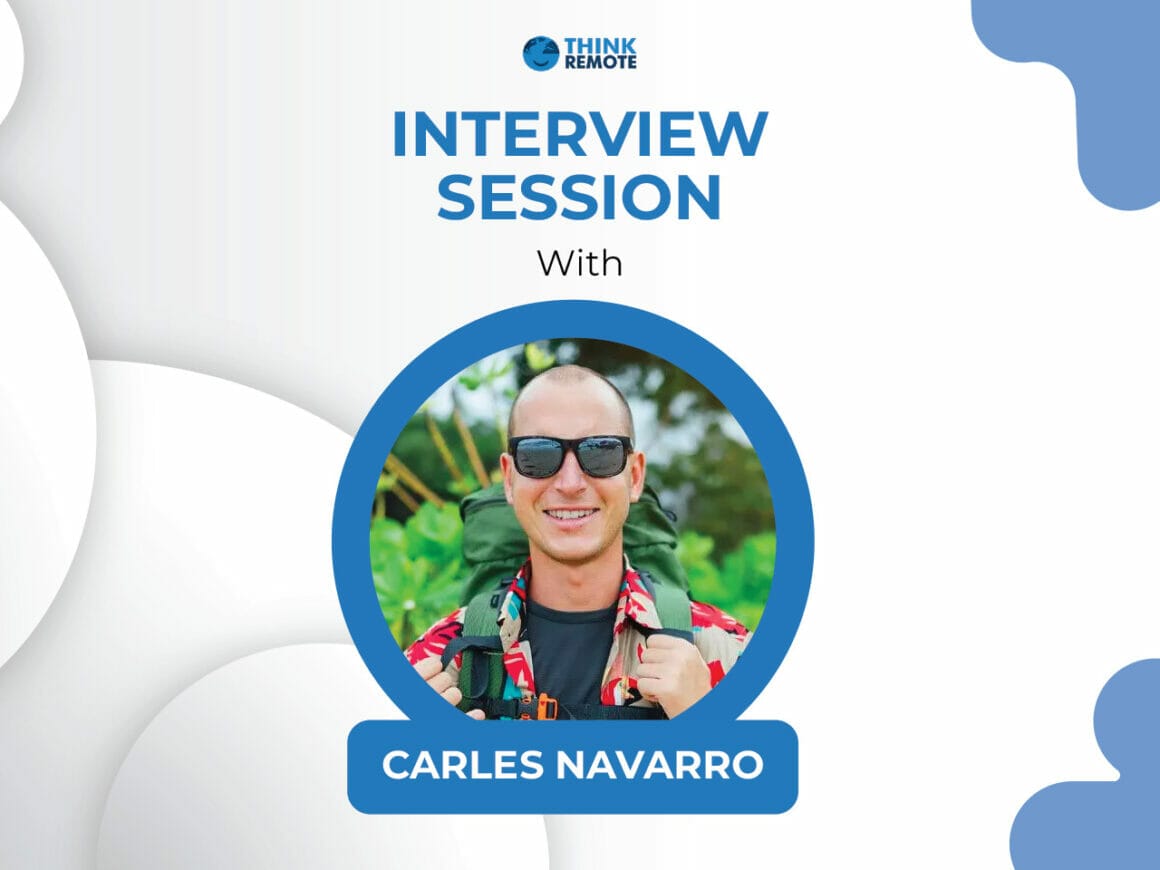The pandemic made thousands of people transform their lifestyles. With the increase in remote work, many decided to take their pack packs and travel the world, becoming digital nomads.
However, before this remote work and digital nomad revolution, there were still people already working and traveling as a lifestyle. Among them, is Carles Navarro. He has been a digital nomad for over 16 years and has become an authority for those seeking to have this lifestyle.
We talked with him, and he shared more about his story, what he loves the most about being a digital nomad, things everyone needs to consider, and advice for those who are attracted to this lifestyle.
1. To start, could you introduce yourself and tell us more about your digital nomad lifestyle?
My name is Carles Navarro. I was born in Barcelona, Spain, but have been traveling and living as a digital nomad for over 16 years. I´m an entrepreneur. I have done a bit of everything in life.
I am a stock photographer, and for several years now, I have dedicated myself to broadcasting on a lot of different channels, in what would be training and teaching both marketing and stock photography, publishing books about digital nomadism; I also have my own podcast called “Nómada Digital” (“Digital Nomad”) and my blog.
2. How did you decide you wanted to become a digital nomad?
I have been traveling for many years. I have been a digital nomad since 2006. When I was 18 years old, I left home from Barcelona, where I am originally from.
I first went to Nicaragua, and since then, I have always been coming and going and traveling without having to work for anyone. In 2018 I settled in Nicaragua, but we had a very important social crisis in Nicaragua, and I decided to leave. There was a conflict that led to arms, and obviously, it was not a safe place to be, so I left the country, and since then, I have lived traveling without having a fixed place.
I have traveled in many ways, and then with the pandemic in between, it has complicated things a lot. I started with a backpack through Southeast Asia, then returned to Central America with a backpack and sleeping in hotels and hostels. I returned to Southeast Asia, where I caught the pandemic issue.
I started traveling in a van. It’s a bit like saying I don’t have my own style but rather what I want at any given time; if I can afford it and I can adapt it, well, I go ahead and experiment constantly.
In 2018 I released my first book, “La vida que yo quiero” (“The life that I want”), which was precisely that, it was to ask, what is the life that I want? And well, it was clear to me that what I wanted at that moment was to live traveling, then everything else doesn’t matter.
3. How would you describe your digital nomad lifestyle?
Digital nomadism is a lifestyle, living and traveling in a way you can sustain. Economically you have to find a way to do it; everyone uses their methods. In my case, it is through my entrepreneurship. The result has been spectacular. Over time you stabilize, and you can travel more and with more peace of mind.
Many people ask me how to become a digital nomad, and we always think of that in the figure of the entrepreneur, who leads a team and such. And yes, I am the perfect cliche, but it is the hard way; the easiest thing is teleworking. Now it is very easy to work for whoever you want because there is a high demand for remote workers. And you already have the economic part, so you can travel wherever you want. But if you think digital nomadism is spending vacations traveling, it is impossible, not even when you are an entrepreneur, and manage your time as you want.
4. How do you choose the places you visit? Do you have a process or it happens spontaneously?
For me, the first thing is the weather. I tropicalized here in Nicaragua for so many years, and when I’m in Europe in winter, I have a terrible time. I have spent several years there and have had several winters and a bad time. So, that is precisely why right now I am between Nicaragua and Costa Ria while the European winter passes.
Then I look at the economic part, now less and less because every time I can afford more, but it is important. For example, in the two countries where I am in Nicaragua, you can sleep in a private hotel room for 10 dollars a night, with internet and comfort, and in Costa Rica, it is 50 and 60. Also when it comes to moving around, it is completely different, if you need to rent a car or there is good public transport.
Knowing the logistics of the country is also important.
I now come from Portugal, and another factor that affected me was the food. It sounds absurd, but it gets to the point where you get tired. I like to eat rich and healthy, and being in a country where you eat well is fantastic. Both Italy and Portugal eat well and cheaply, I usually eat out because I always travel with a suitcase, and I don’t have a kitchen. Only when I’m in the van or an apartment do, I sometimes cook. But if I’m traveling, I look to eat out, and that part is important.
In the United States, eating out is very expensive, for example. In Nicaragua, it is cheap, and you eat well.
In short, what I try to do is be comfortable and happy. Feeling comfortable, I seek to enjoy life, which is why I chose this lifestyle. There are many interesting factors, in the summer I was in Montenegro, and although it’s nice, I didn’t like the food and people don’t speak English, so you feel more lonely.
5. Tell us about the advantages and disadvantages of being a digital nomad
In terms of relationships it is often complicated. I have had a partner traveling, and it was very difficult. Now that I’m single, relationships are almost always sporadic because you’re never in one place, and who wants a relationship if you’re not anywhere? This part is difficult, but when you get it, it is very pleasant because you find another person with whom you can share this.
The issue of social relations is also difficult. For example, I have a little niece who, when I see her, gets bigger and bigger, making you feel like you are losing those moments.
The logistics part can sometimes be a pain. Little by little, you learn this. When I started traveling, I didn’t care where to sleep. Not now, now I want to sleep well and I want to be in a place where I feel comfortable.
I have a van with portable internet, and I love to travel like this. When I get bored, I leave the van and take a plane. It is this ease of doing things that I love.
Little by little, you adapt to what matters to you.
6. How do you stay productive while traveling?
It depends. I usually try to work where I am, in the apartment or hotel. Because looking for coworking spaces already requires going to the site, I have never spent so much time in the same place. It is expensive to go for a day or for a few days.
I usually get up early, and depending on my time slot, I adjust to my work team being in Europe. What I try to do is delegate everything that can be delegated, automate everything that can be automated, and be there to watch everything and I can do that at any time.
7. What´s the biggest lesson you´ve learned as a digital nomad?
The biggest lesson is that things are done when you want them. It is always by your will; it has no more history. I always see people who tell me, “if I could live like this, how would I like it.” And I say, I mean, why can’t you?
There are always excuses; excuses lead to nothing; I apply this to everything. If I want to do something, I do it, and that’s it. And if not, then I don’t want to do it. But making excuses for anything is absurd; it never works.
Where to reach out to him?






